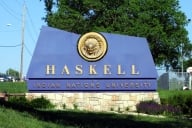You have /5 articles left.
Sign up for a free account or log in.
A Democratic senator who has been leading legislative efforts to crack down on campus sexual assault on Monday accused the main higher education lobbying association of interfering with a survey she sent to colleges inquiring about their sexual assault policies.
Senator Claire McCaskill of Missouri criticized the American Council on Education for sponsoring an online briefing conducted by a law firm that provided guidance to colleges on responding to her survey, which was sent to 450 institutions last month.
In a letter to ACE’s president, Molly Corbett Broad, McCaskill said that she was “extremely troubled” by the webinar, which she said reportedly “cautioned institutions regarding whether and how they would respond to the survey.”
“I have also heard reports that this webinar has had a chilling effect on institutions’ participation in the survey,” McCaskill wrote.
She said that she wanted to see copies of the webinar materials “in order for me to assess the damage to the survey that may have been done by the actions of the American Council on Education.”
The American Council on Education last week refused an initial request by McCaskill’s office to provide a copy of the webinar slides and materials.
“We do not consider it appropriate to release the PowerPoint slides or the attendee list,” Ada Meloy, general counsel at ACE, wrote in a letter to McCaskill’s staff last week. “As a membership association, we feel that we need to serve our members and that the requests you have made intrude on their rights to association.”
Meloy added that the organization owed its members “protection from any adverse consequences for joining in this educational offering provided by ACE.”
The webinar -- titled “Briefing on Congressional Investigations and the McCaskill Survey” -- was offered to ACE member institutions free and was conducted by the law firm Covington & Burling, according to Meloy.
Meloy said in an interview Monday that the webinar was aimed at educating its member institutions that were “clamoring” for guidance about the survey.
“Do we have to respond?” she said colleges were asking. “What kind of legal parameters are around this?”
“The advice was to be sure to respond truthfully and honestly when responding,” she said. “There was absolutely no effort to discourage any one from responding.”
Meloy said the webinar did not give legal advice to colleges but instead provided an informational overview of how Congressional investigations work.
The disagreement between McCaskill and the council comes as the colleges and universities that the association represents are increasingly facing scrutiny on several fronts for how they handle sexual assault on their campuses.
Aside from Congressional efforts by McCaskill and Senator Kirsten Gillibrand of New York, who has also been active on the issue, the Obama administration has pushed colleges to do more to stop sexual assault.
In addition, the Education Department’s Office for Civil Rights has been stepping up its enforcement actions against colleges. The department also, for the first time, released a list of the 55 institutions that it is currently investigating for mishandling sexual assault cases in violation of federal anti-discrimination law.








